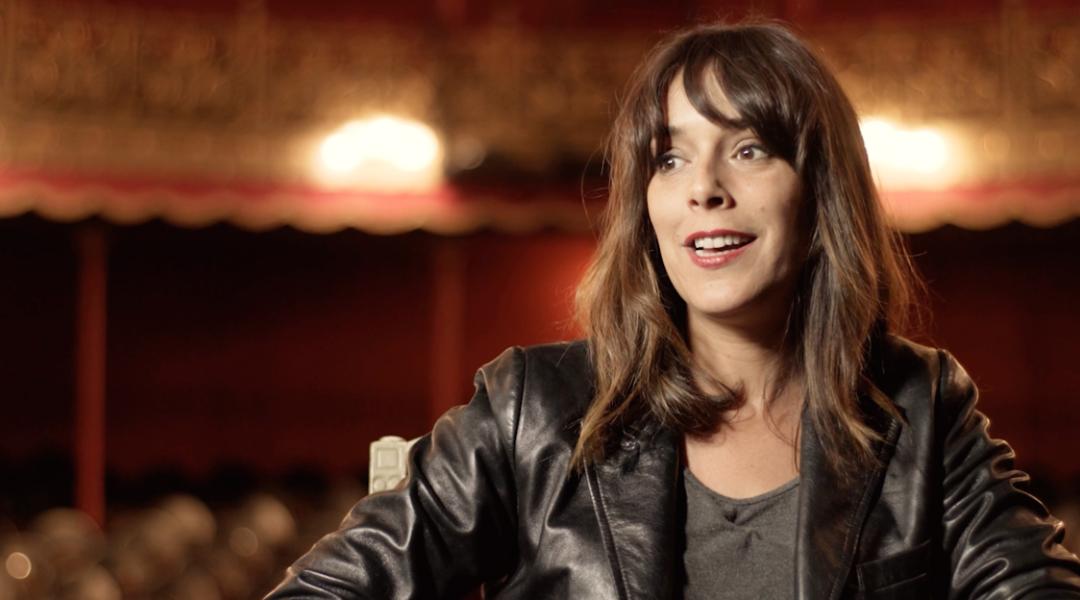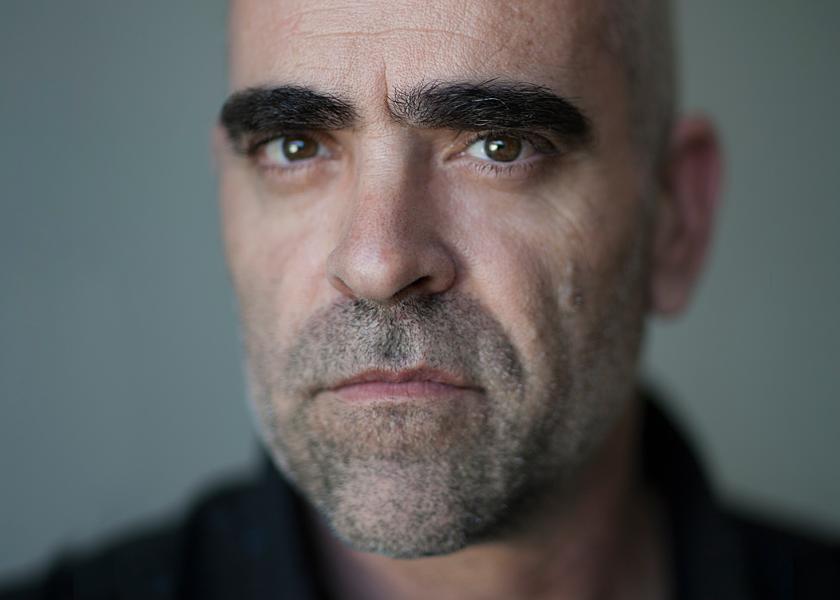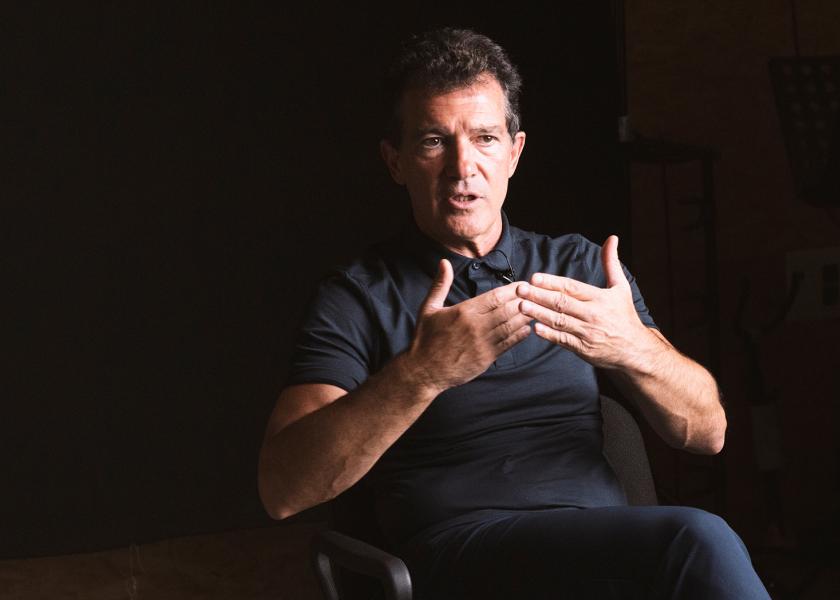Belén Cuesta
Versatility, Hard Work and Ingenuity

This is her year, even though it seems that the last few years of Spanish cinema are also hers. She plays the leading role in the award-winning ‘The Endless Trench’, and her latest film, ‘Advantages of Travelling by Train’, with Luis Tosar, Pilar Castro and Ernesto Alterio, has just premiered. We travel back in time with her to Teatro Lara, where a story of divine revelations and Whitney Houston songs marked the official beginning of a career founded on hard work and perseverance.
Finding time to have a chat with her is tough; she has had three premieres since September and has attended the San Sebastián and Sitges festivals. When she gets to our appointment at Teatro Lara, where she created her memorable Sister Milagros, she’s also in a hurry. She is taller than she seems on screen: almost 1.80 metres of smile and busy hands that hang onto her handbag throughout our interview.
The fact that Belén Cuesta (Seville, 1984) is comical isn’t surprising: she tells a story and you can’t help but laugh, partly because of that Andalusian accent that she dispenses with freely. “Carrying my handbag everywhere must be genetic,” she laughs. “My mother, Luisa, gets out of bed with her bag already over her shoulder.” What really stands out is the sincere openness of a woman who is literally everywhere lately.
While she puts on her make-up, we talk about her hobbies and her ancestry (“Brought up in Malaga, but my father is from Salamanca”), and also the female roles that inspire her. “Basically, the women in my family: my mother and my aunts, six on one side, eight on the other; my cousins... They’re all very different, although we all have something in common. I feel fortunate to have grown up within such a matriarchy,” she explains.
Until the small miracle that was Holy Camp!, where she played a slightly naïve nun in the midst of an identity crisis, Belén Cuesta’s career had transpired between micro-theatre projects, fleeting appearances in TV series and films, and waitressing and shelf-stacking jobs, or anything that would allow her to earn some money while getting some small parts in independent plays. Coinciding with the Los Javis’ musical tour across Spain (and Russia!), she also started collaborating on Andreu Buenafuente’s programme. “It was a wonderful time, because I learnt a lot with Andreu and Berto (Romero), especially about live shows; I was like a fish out of water.”
“When I started working in film and TV, I struggled to understand the language, and I was terribly shy; I felt that working with such a huge crew around me was really intrusive. But, fortunately, I think that, since then, I have also learnt how to enjoy it, trying to create that darkness that happens onstage, where you can’t see the audience,” she assures us. “I think that when we’re in front of the camera, we have to do the same thing, like condensing all of that audience that is at the theatre inside the camera, looking for some sort of trick.”
“What I love the most about this job is the process: inventing an entire story about someone. Deciding how they move around at home, how they get up... That’s what’s beautiful about it”
Since then, Belén Cuesta’s presence onscreen and onstage has been constant, with memorable secondary roles and, lately, leading roles with a significant shift in register. Many of her roles might have been comical (“I’m practically a meme already,” she laughs, alluding to her character in the Netflix show Paquita Salas), but at a short distance, we can make out a meticulous and perfectionist professional. “What I love the most about this job is the process,” she explains. “Inventing an entire story about someone. Deciding how they move around at home, how they get up...; that’s what’s beautiful about it.”
This creative process has been particularly intense in The Endless Trench, a complex story that elapses over more than thirty years, from the Spanish Civil War until 1969; a drama about fear and love in which Belén brings Rosa, Antonio de la Torre’s wife, to life. “We not only had to build who she is, a woman of that era, and understand her in that context, but also add all of those layers so that her past was always present within the story,” clarifies the actor.
“The industry itself is the one that decides ‘this actor does this, that actor does that’. At the end of the day, we’re all actors, and our job is to play in different fields”
Is Rosa a milestone in her career, during a year that has also featured her appearance at the Mérida Classical Theatre Festival with Ovid’s Metamorphoses? “I’m not sure that ‘milestone’ is the right word,” she counters. “Definitely ‘good fortune’; I have been lucky enough that directors have trusted me to play a role like that; they’ve allowed me to tell a story that is so important to me and so fair of being told. This happens a lot, there are comedy or drama actors, and the industry itself is the one that decides «this actor does this, that actor does that». At the end of the day, we’re all actors, and all we want out of our job is to play in different fields,”
It doesn’t seem that 2020 will be any quieter for the actress. We already know that she’ll be playing a leading role in Cesc Gay’s latest production, together with Javier Cámara and Alberto San Juan, and she will also star in Dani de la Orden’s next feature, but she won’t give away whether or not she’ll be in the next season of Money Heist. Is there anything left of the Belén Cuesta who came to Madrid looking for work as an actor? “I think a bit of the fear is still there: fear of not working, some of that is still there. And my enthusiasm and desire to work, as well. So, I’m pretty much the same person really.”



